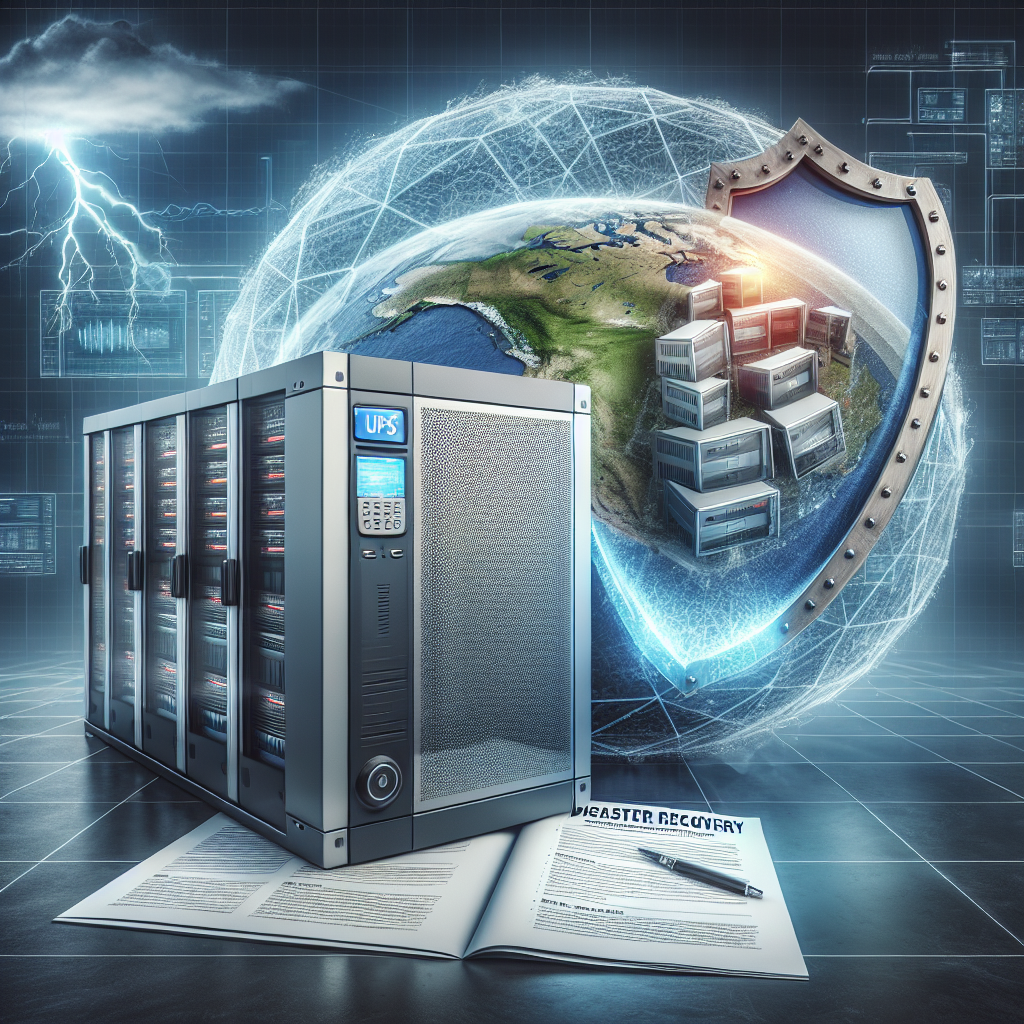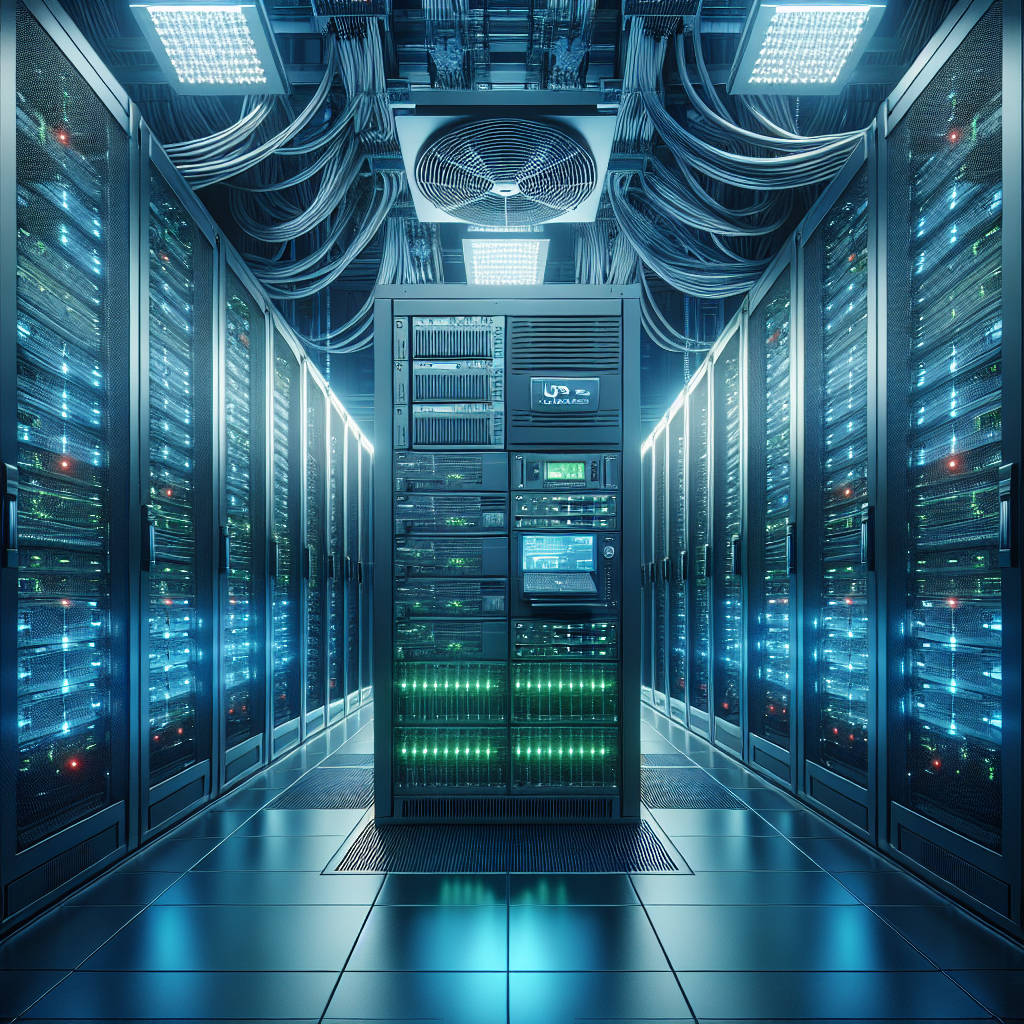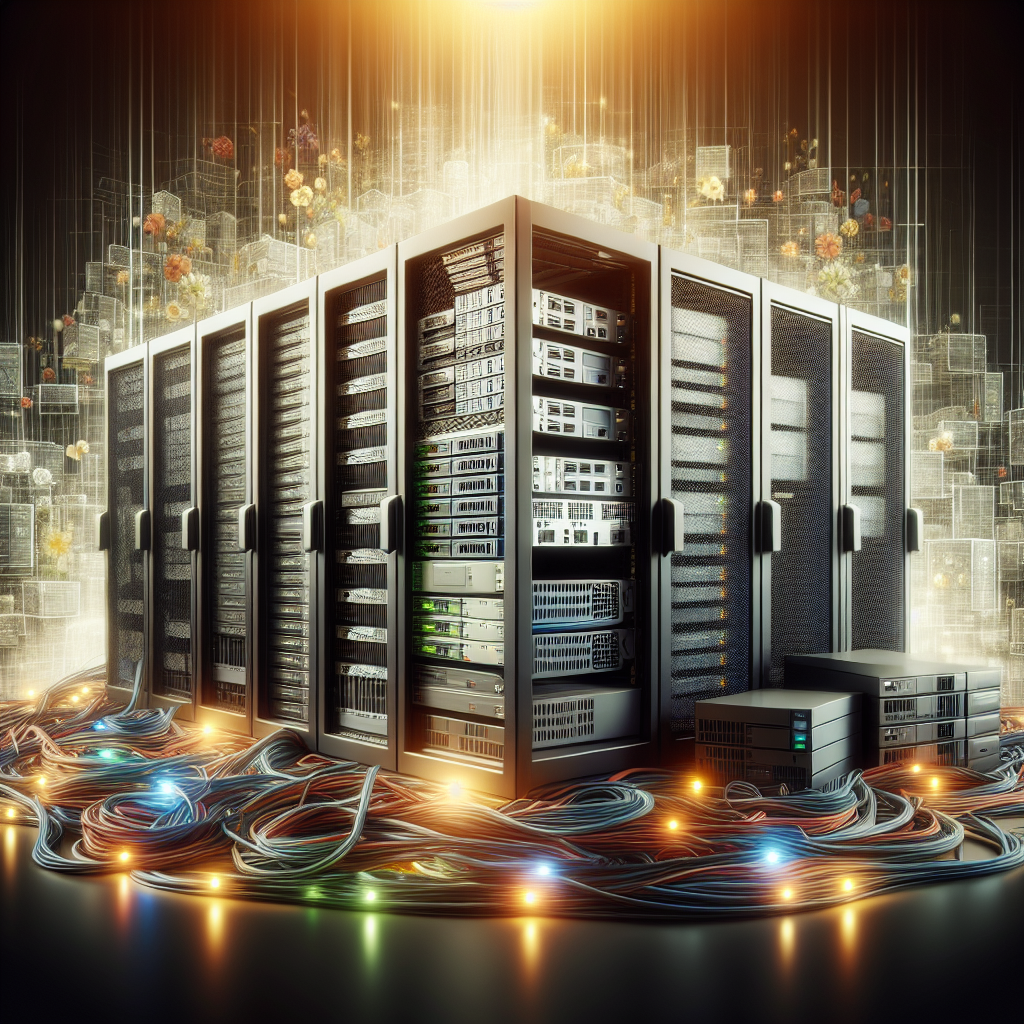Your cart is currently empty!
Tag: UPS

The Role of UPS in Disaster Recovery Planning for Data Centers
In today’s digital age, data centers play a critical role in the operations of businesses, government agencies, and other organizations. These facilities house the servers, storage devices, and networking equipment that store and process vast amounts of data. In the event of a disaster, such as a natural disaster, cyberattack, or equipment failure, the data center’s operations can be severely impacted, leading to potential data loss, downtime, and financial losses.To ensure the continuity of operations and the protection of critical data, disaster recovery planning is essential for data centers. This involves developing strategies and protocols for responding to and recovering from disasters in a timely and efficient manner. One key component of disaster recovery planning is having a reliable backup power source in place, such as an Uninterruptible Power Supply (UPS).
UPS systems are designed to provide backup power to data center equipment in the event of a power outage or disruption. They work by storing electrical energy in batteries and delivering it to the equipment when needed. UPS systems ensure that critical infrastructure, such as servers and networking equipment, remain operational during power outages, preventing data loss and minimizing downtime.
UPS systems play a crucial role in disaster recovery planning for data centers by providing the following benefits:
1. Continuous Power Supply: UPS systems ensure that data center equipment receives a continuous and uninterrupted power supply, even in the event of a power outage. This helps prevent data loss and ensures the continuity of operations.
2. Protection from Power Surges: UPS systems also protect data center equipment from power surges and fluctuations, which can damage sensitive electronic components. By providing clean and stable power, UPS systems help extend the lifespan of equipment and reduce the risk of equipment failure.
3. Remote Monitoring and Management: Many UPS systems come with remote monitoring and management capabilities, allowing data center operators to monitor the status and performance of the UPS system from a central location. This enables proactive maintenance and troubleshooting, ensuring the reliability and efficiency of the UPS system.
4. Scalability: UPS systems can be easily scaled to meet the changing power requirements of data centers. As data center operations grow and evolve, UPS systems can be upgraded or expanded to accommodate increased power demands.
In conclusion, UPS systems play a critical role in disaster recovery planning for data centers by providing backup power and ensuring the continuity of operations in the event of a disaster. By investing in a reliable UPS system, data center operators can protect critical infrastructure, prevent data loss, and minimize downtime, ultimately safeguarding the continuity of operations and the integrity of data.

Maximizing Efficiency and Reliability with Data Center UPS Solutions
In today’s digital age, data centers play a crucial role in storing and processing vast amounts of information for businesses and organizations. To ensure uninterrupted operation and protect valuable data, it is essential to have a reliable and efficient uninterruptible power supply (UPS) solution in place.Maximizing efficiency and reliability with data center UPS solutions is crucial for maintaining the smooth operation of critical IT infrastructure. UPS systems act as a backup power source in the event of a power outage or fluctuation, providing crucial time for systems to shut down properly or switch over to a secondary power source.
Efficiency is key when it comes to data center UPS solutions, as inefficient systems can lead to unnecessary energy consumption and higher operating costs. By investing in high-efficiency UPS systems, data center operators can reduce energy waste and lower their carbon footprint, while also saving money on electricity bills.
Reliability is another crucial factor to consider when choosing a UPS solution for a data center. Downtime can be costly for businesses, leading to lost revenue, decreased productivity, and potential damage to their reputation. A reliable UPS system can help prevent downtime by providing seamless power protection and ensuring continuous operation of critical IT systems.
There are several key considerations to keep in mind when selecting a UPS solution for a data center. First and foremost, it is important to assess the power requirements of the data center, including the total load and the required runtime during a power outage. This will help determine the size and capacity of the UPS system needed to support the data center’s operations.
It is also important to consider the scalability of the UPS solution, as data centers may need to expand or upgrade their systems in the future. Choosing a modular UPS system that can easily be expanded or upgraded can help future-proof the data center and ensure that it can adapt to changing power requirements.
In addition, data center operators should consider the reliability and maintenance requirements of the UPS system. Regular maintenance and testing are essential to ensure that the UPS system is functioning properly and can provide reliable power protection when needed. Investing in a UPS system from a reputable manufacturer with a track record of reliability can help ensure that the data center is protected against power disruptions.
In conclusion, maximizing efficiency and reliability with data center UPS solutions is crucial for ensuring the smooth operation of critical IT infrastructure. By investing in high-efficiency, reliable UPS systems and considering factors such as power requirements, scalability, and maintenance, data center operators can minimize downtime, reduce operating costs, and protect valuable data. By choosing the right UPS solution, data centers can ensure that they are well-equipped to handle any power-related challenges that may arise.

Choosing the Right UPS for Your Data Center: Factors to Consider
Choosing the right uninterruptible power supply (UPS) for your data center is crucial in ensuring the continuous and reliable operation of your critical IT infrastructure. With the increasing reliance on technology and data, downtime can be extremely costly for businesses in terms of lost revenue, damaged reputation, and decreased productivity. Therefore, it is essential to carefully consider several factors when selecting a UPS for your data center.1. Power Capacity:
The first factor to consider when choosing a UPS for your data center is the power capacity of the unit. You need to calculate the total power consumption of your IT equipment and select a UPS with sufficient capacity to handle the load. It is recommended to choose a UPS with a capacity that is at least 20% higher than the total power consumption of your equipment to account for any future expansion or additional equipment.
2. Scalability:
Scalability is another important factor to consider when selecting a UPS for your data center. As your business grows and your IT infrastructure expands, you may need to add more equipment to your data center. Therefore, it is essential to choose a UPS that can be easily scaled up to accommodate the increasing power requirements of your data center. Look for a UPS that offers modular or hot-swappable battery packs and the ability to add additional power modules as needed.
3. Efficiency:
Energy efficiency is a critical consideration when selecting a UPS for your data center. A UPS with higher efficiency can help reduce energy costs and minimize carbon footprint. Look for a UPS that is Energy Star certified and has a high efficiency rating, such as 90% or higher. Additionally, consider features like eco-mode and intelligent load shedding to further improve energy efficiency.
4. Battery Backup Time:
The battery backup time of a UPS is another important factor to consider, especially if you are located in an area prone to frequent power outages. The battery backup time should be sufficient to allow for a graceful shutdown of your IT equipment or to keep your critical systems running until the power is restored. Consider factors like battery type, capacity, and recharge time when selecting a UPS with the appropriate battery backup time for your data center.
5. Reliability and Redundancy:
Reliability is paramount when selecting a UPS for your data center. Look for a UPS from a reputable manufacturer with a proven track record of reliability and quality. Additionally, consider features like automatic voltage regulation (AVR), surge protection, and automatic bypass to ensure uninterrupted power supply to your critical IT equipment. Redundancy is also important to consider, as having redundant UPS units can provide an extra layer of protection against power failures and ensure continuous operation of your data center.
In conclusion, choosing the right UPS for your data center requires careful consideration of several factors, including power capacity, scalability, efficiency, battery backup time, reliability, and redundancy. By taking these factors into account and selecting a UPS that meets the specific needs of your data center, you can ensure the continuous and reliable operation of your critical IT infrastructure.

The Importance of Data Center UPS Systems in Ensuring Business Continuity
In today’s digital age, data centers play a crucial role in storing, processing, and managing vast amounts of information for businesses. With the increasing reliance on technology for everyday operations, the importance of data center UPS systems in ensuring business continuity cannot be overstated.UPS, or uninterruptible power supply, systems are critical components of data centers that provide backup power in the event of a power outage or disruption. This is essential for maintaining the availability and reliability of critical IT infrastructure and preventing costly downtime.
One of the main reasons why UPS systems are so important in data centers is their ability to provide seamless power protection and backup during unexpected power failures. Power outages can occur due to a variety of reasons, such as severe weather, equipment failure, or human error. Without a UPS system in place, data centers risk losing power and potentially losing critical data and services.
In addition to protecting against power outages, UPS systems also help regulate power quality and prevent fluctuations in voltage that can damage sensitive IT equipment. By providing a consistent and clean power supply, UPS systems help ensure the longevity and reliability of data center infrastructure.
Furthermore, UPS systems play a crucial role in ensuring business continuity by minimizing downtime and maintaining operations during power disruptions. Downtime can be extremely costly for businesses, leading to lost revenue, decreased productivity, and damage to reputation. By having a reliable UPS system in place, data centers can continue to operate seamlessly and meet the demands of customers and stakeholders.
It’s important for businesses to invest in high-quality UPS systems that are designed to meet the specific needs of their data center infrastructure. This includes considering factors such as capacity, runtime, scalability, and redundancy to ensure optimal performance and protection.
In conclusion, the importance of data center UPS systems in ensuring business continuity cannot be underestimated. By providing backup power, regulating power quality, and minimizing downtime, UPS systems play a critical role in maintaining the availability and reliability of data center operations. Businesses that prioritize the implementation of UPS systems can safeguard their IT infrastructure, protect critical data, and ensure seamless operations in the face of power disruptions.
